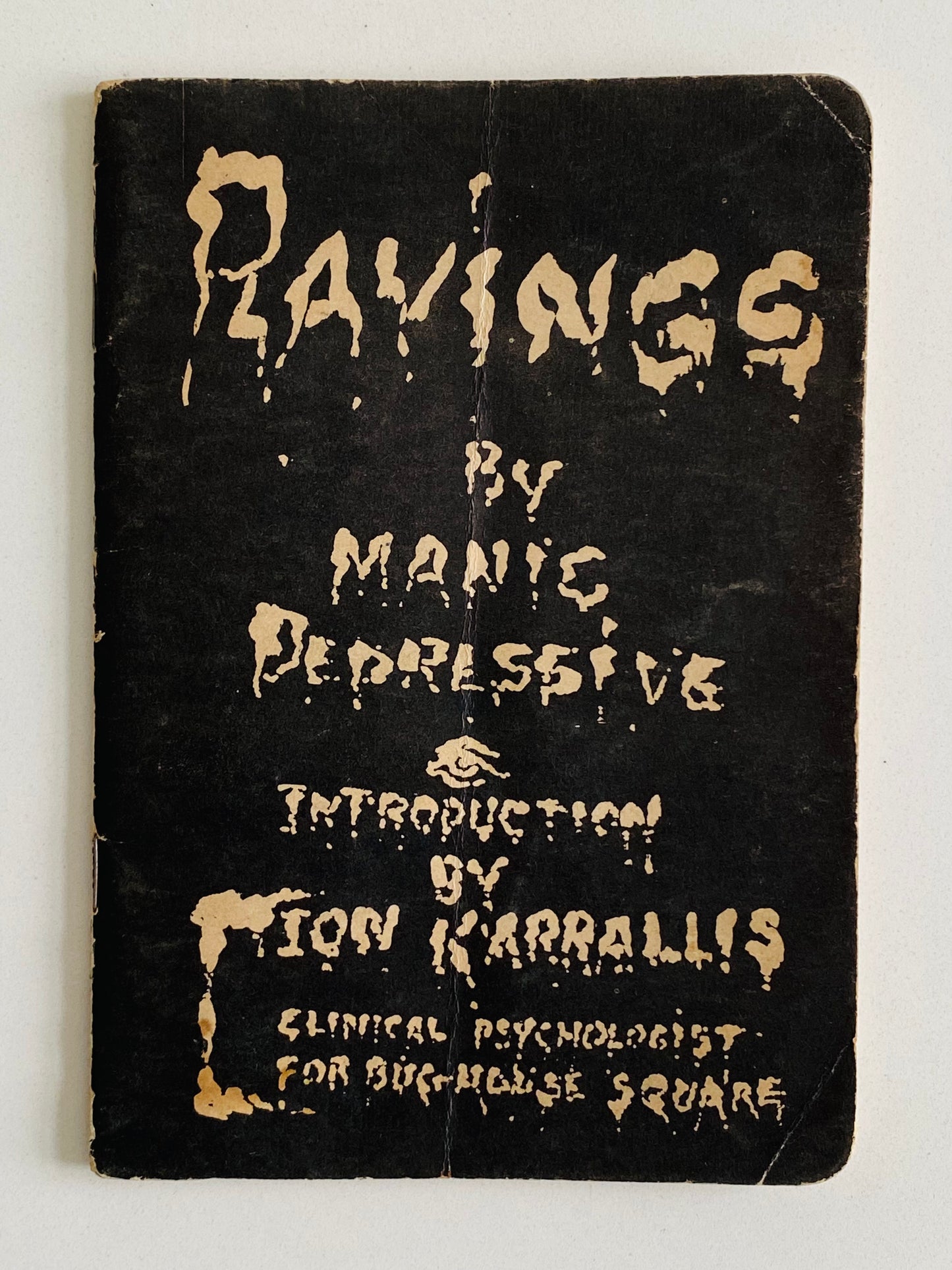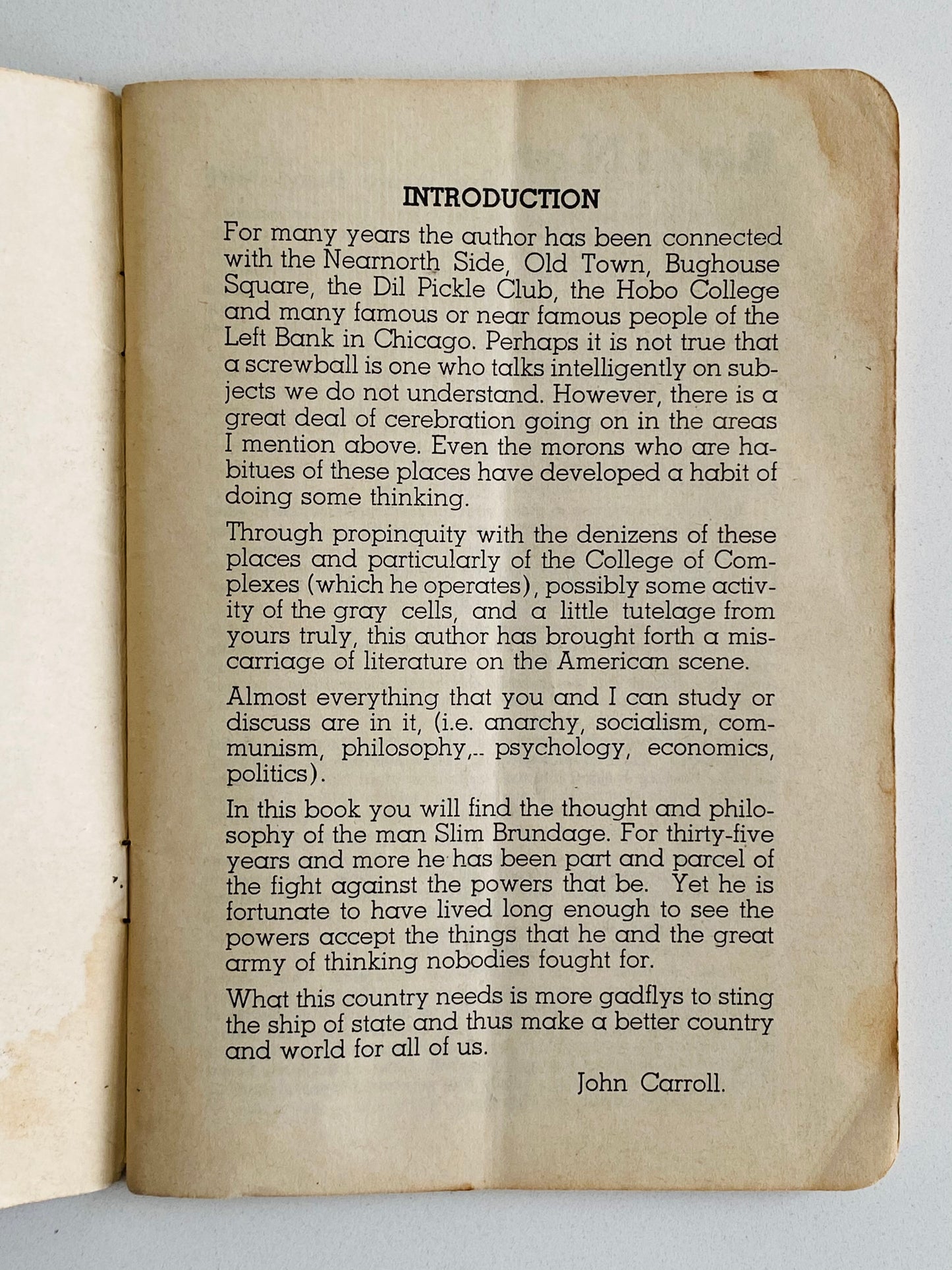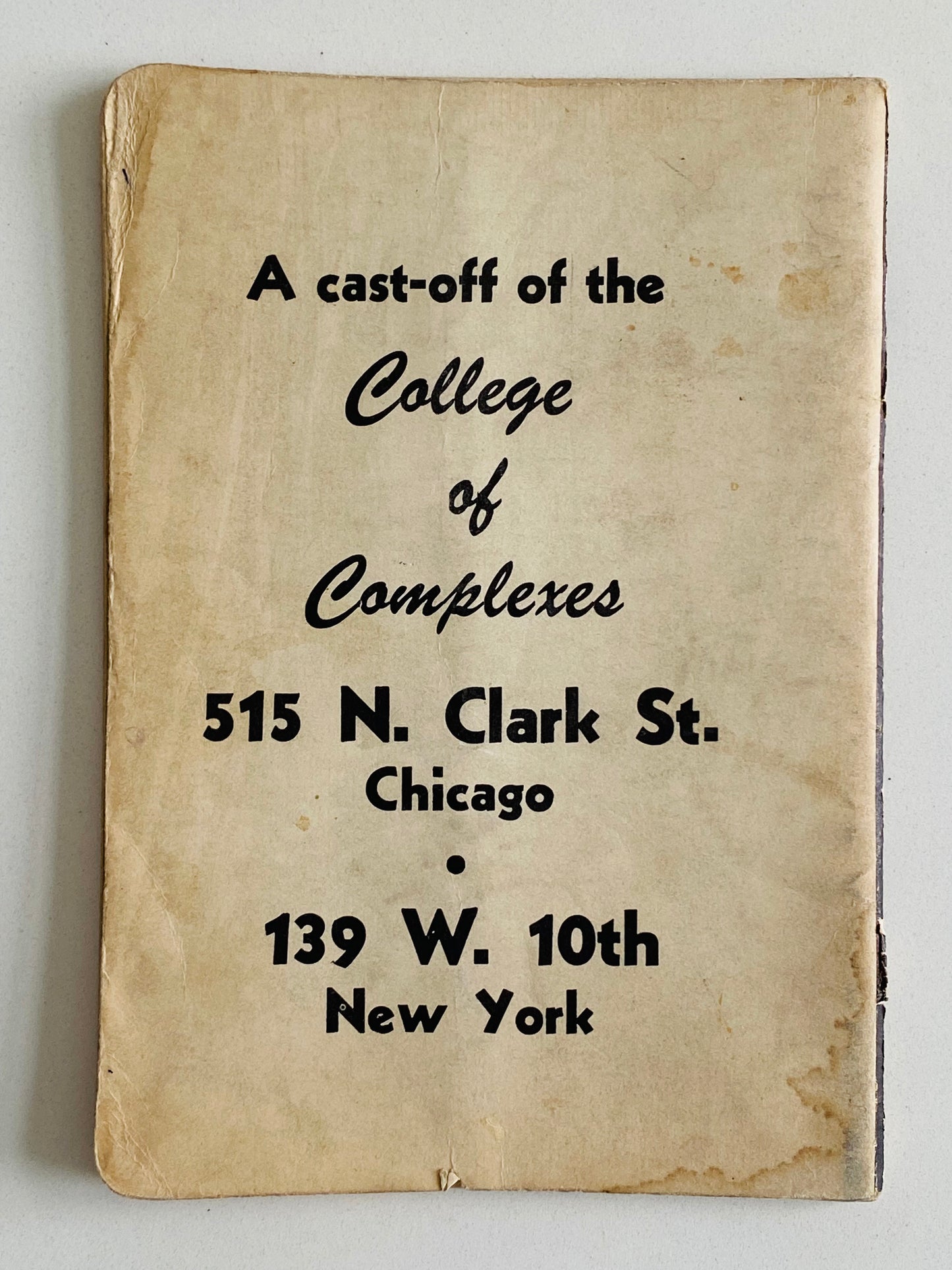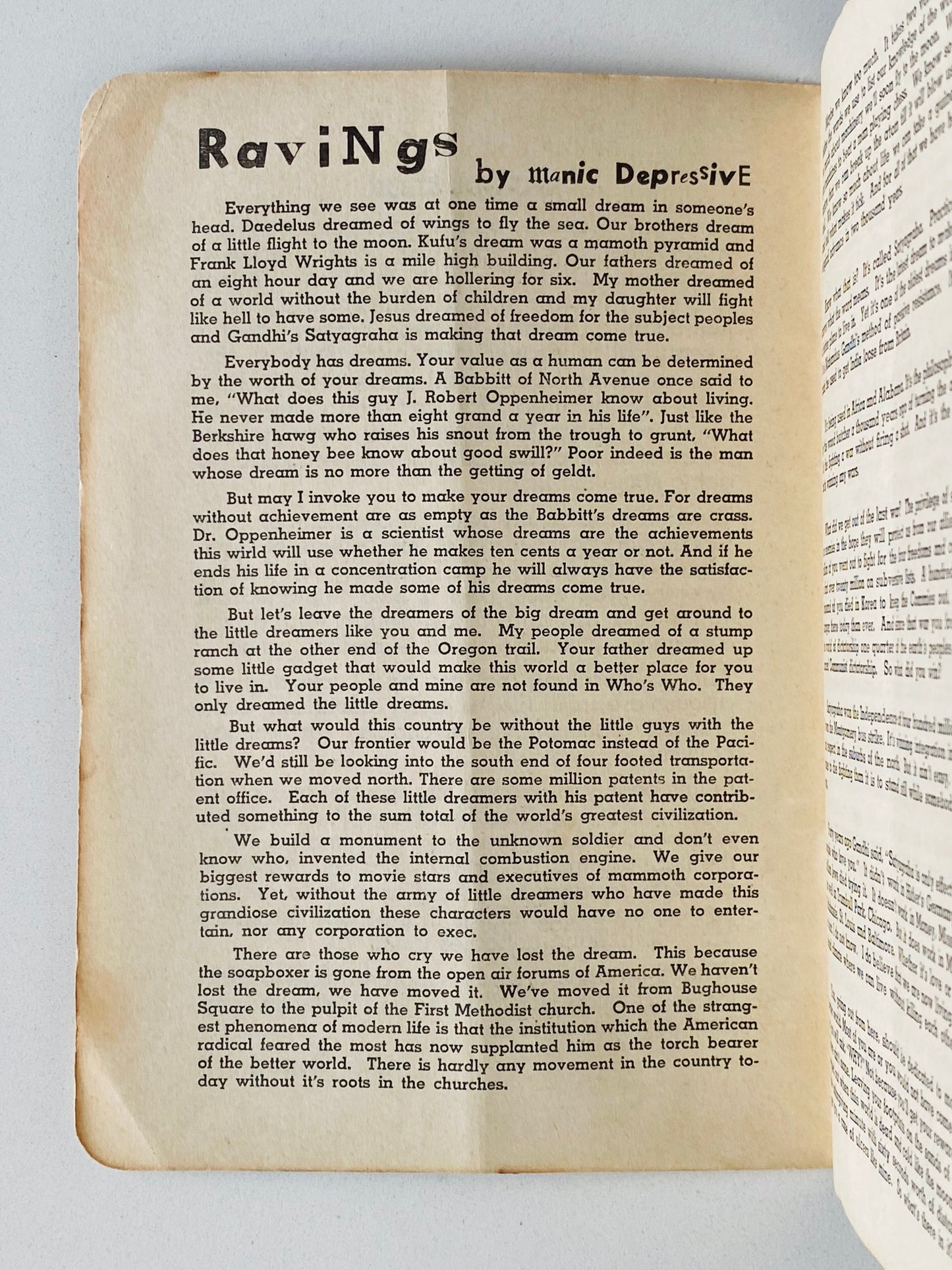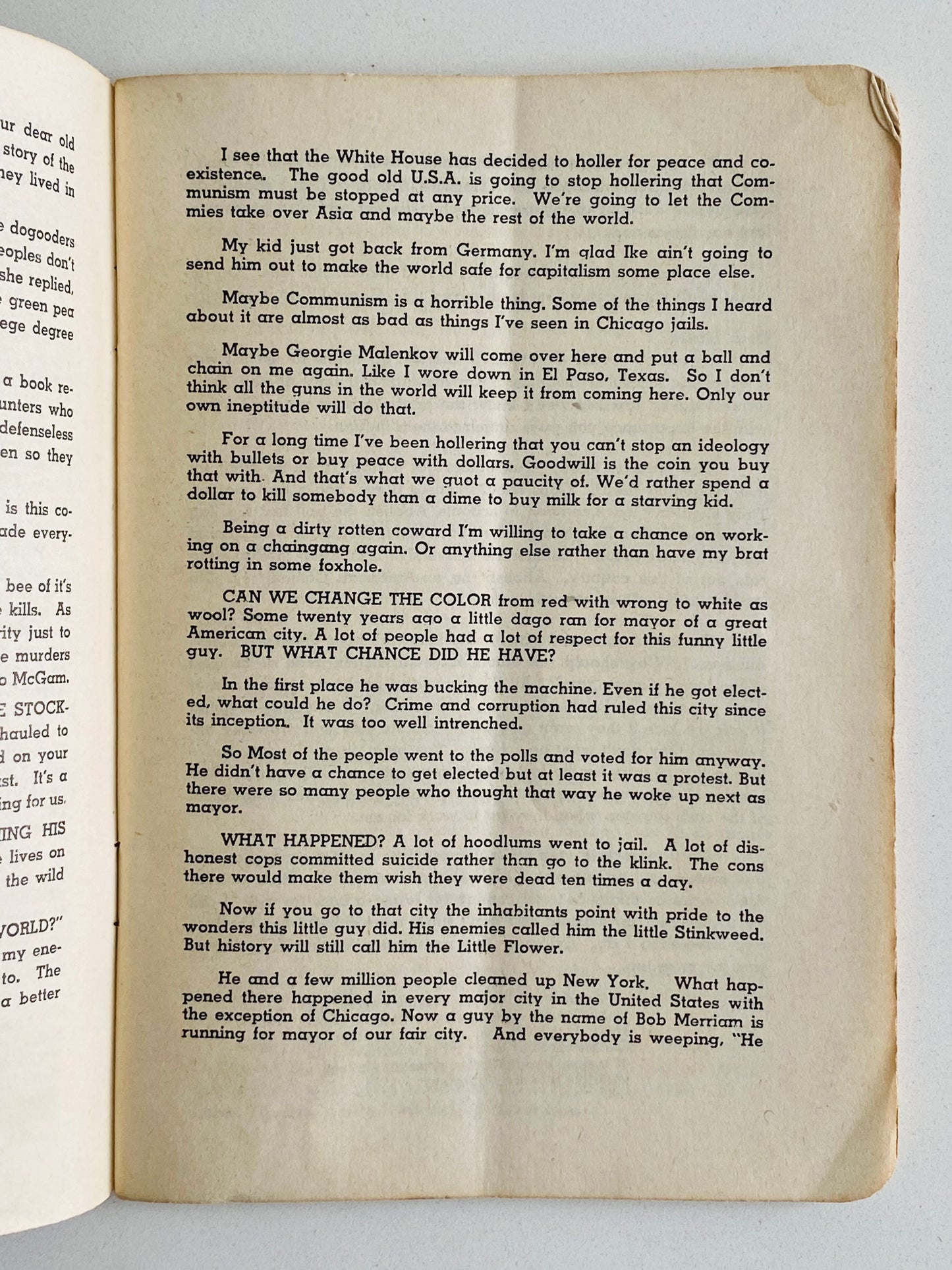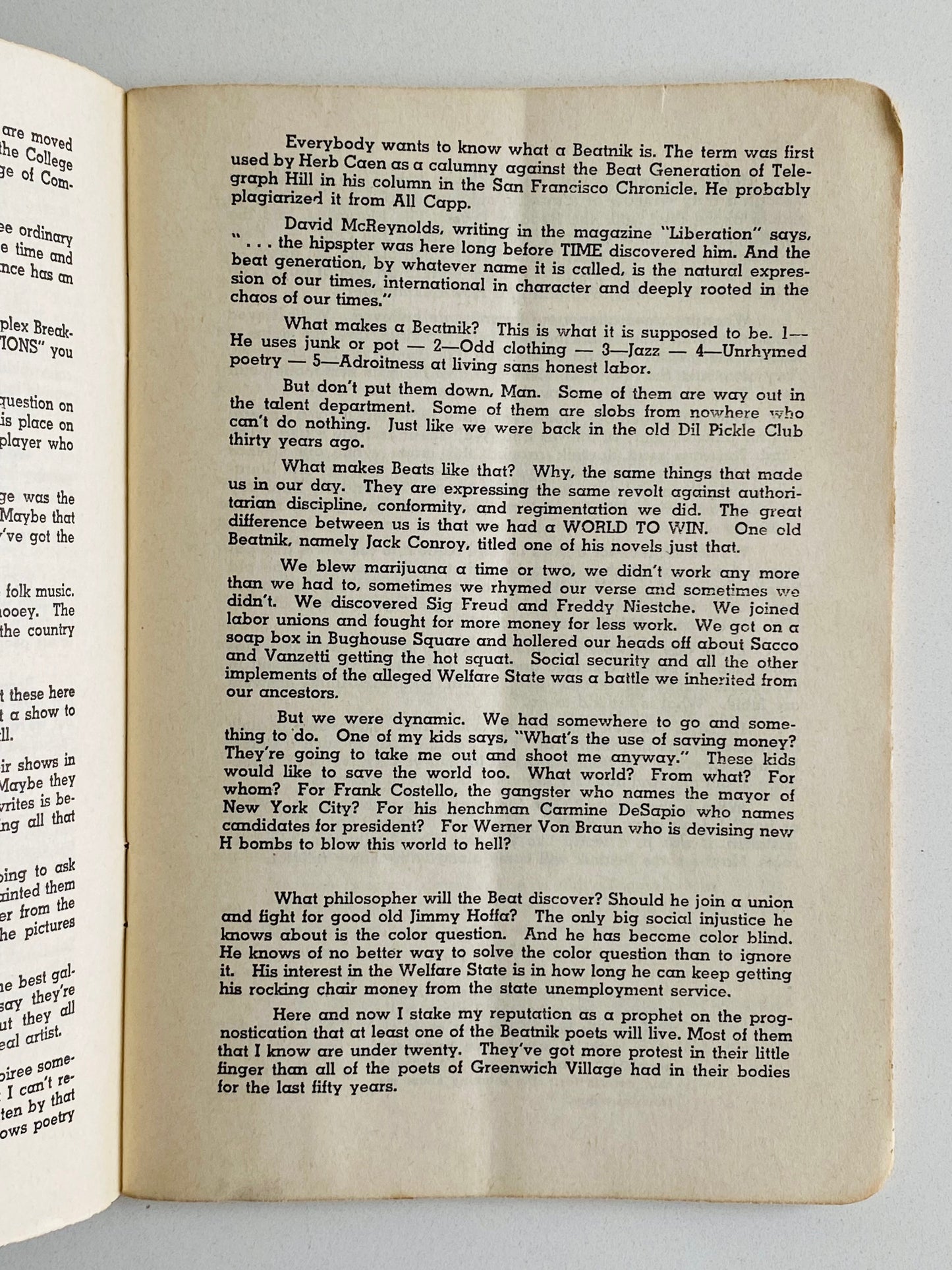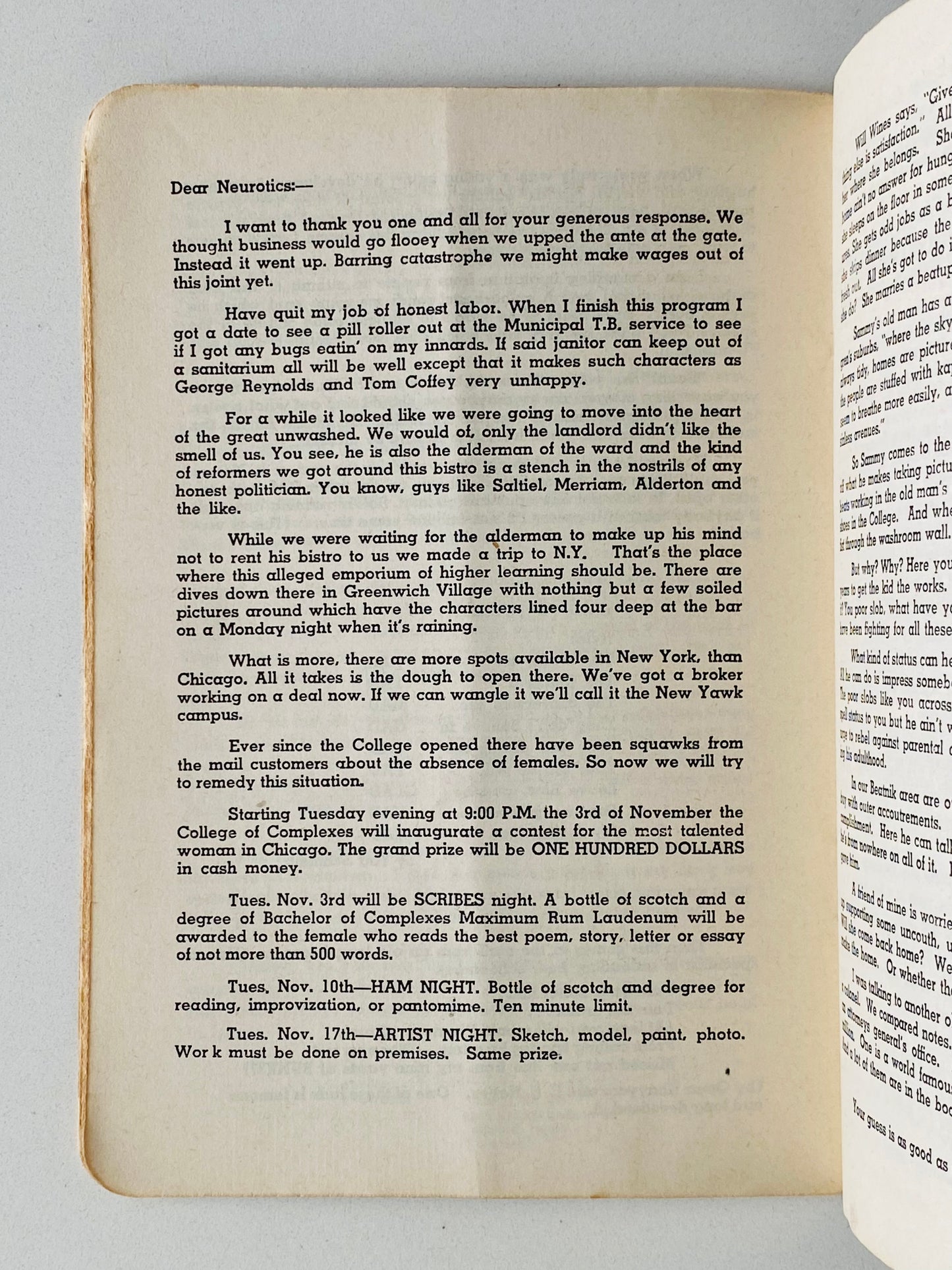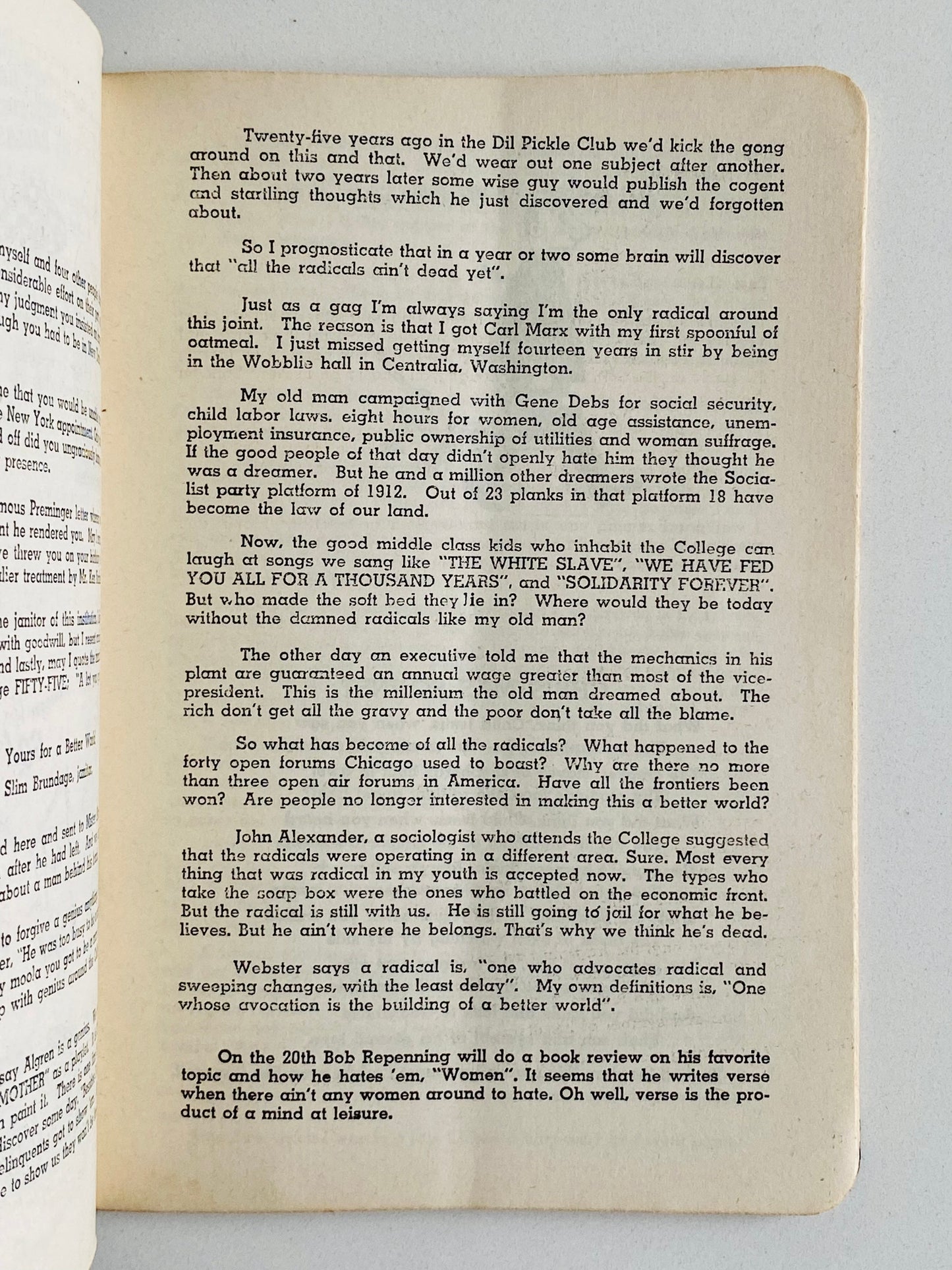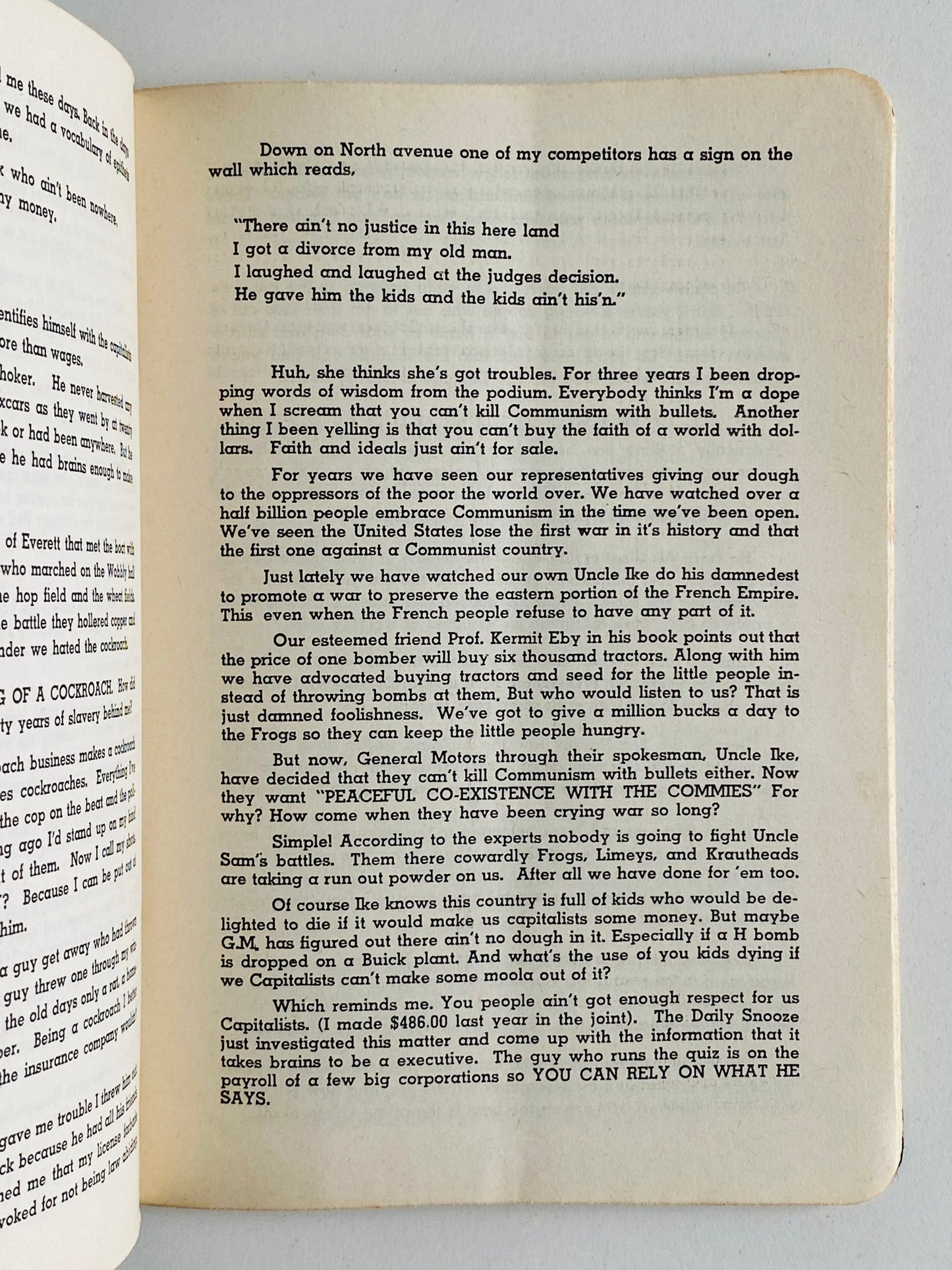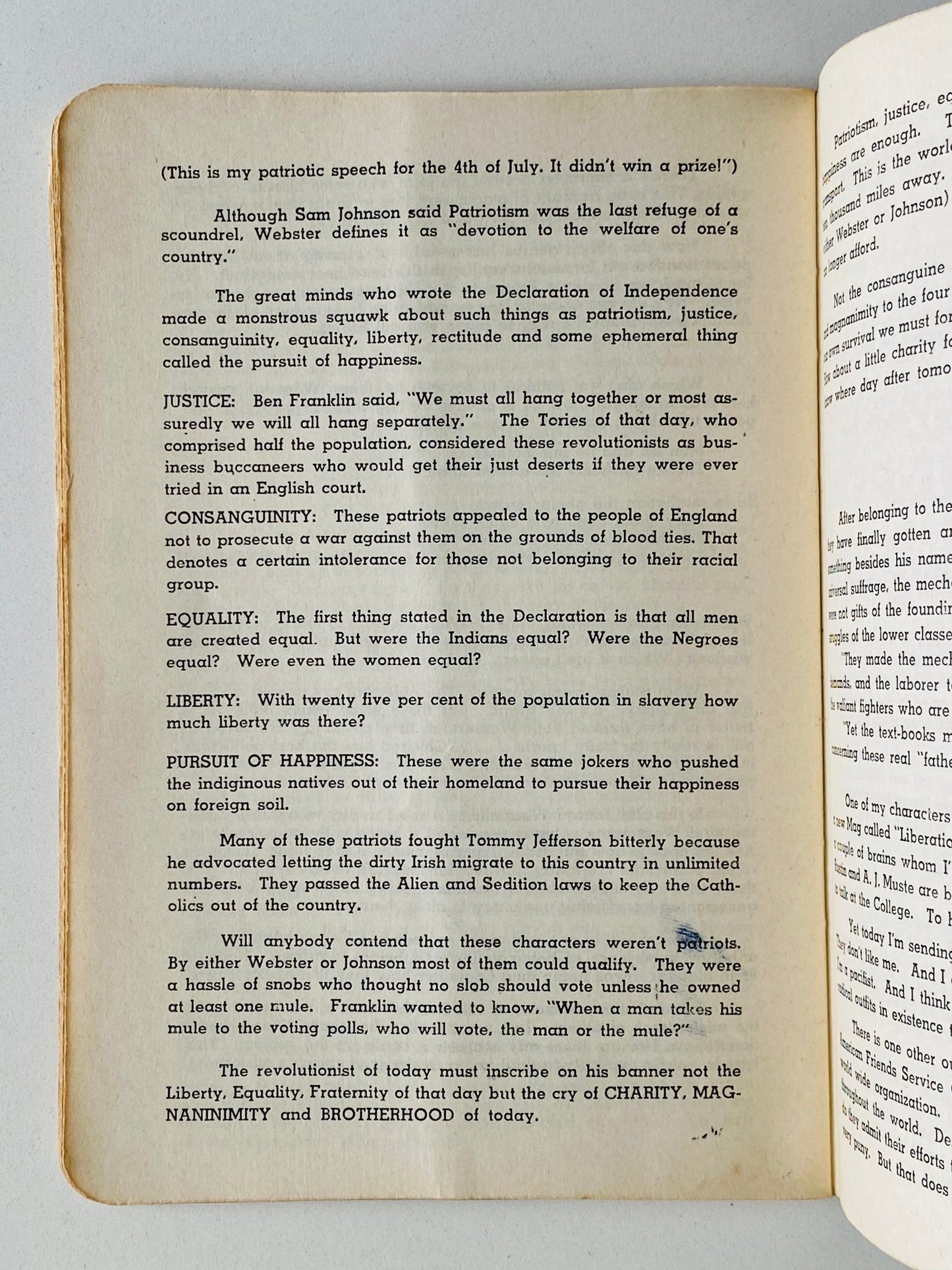Specs Fine Books
1950's SLIM BRUNDAGE. Ravings of a Manic Depressive. Rare Beatnik Philosopher and Soap-Boxer!
1950's SLIM BRUNDAGE. Ravings of a Manic Depressive. Rare Beatnik Philosopher and Soap-Boxer!
Couldn't load pickup availability
An excessively rare pamphlet by one of the most important voices in the Chicago Beatnik, Free Speech, and Anti-War scenes. Here Brundage, now almost an elder statesman among the beatniks, is weary and worried that the next generation of beatniks have no hope, nothing but disdain, nothing to believe in, and no anticipation that things can get better. Fascinatingly, he sees a lack of belief in God as an important element in this loss. . . though Brundage is far from a Christian moralist.
Dating appears difficult. It feels like he's addressing the 60's, but it is more likely that the pamphlet originates in the 1950's. No other examples we can locate in private or public holdings.
Brundage, Slim. Ravings by Manic Depressive. Introduction by Ion Karrallis [i.e. John Carroll] Clinical Psychologist for Bug-House Square. Self-Published.
Attractive lithographed wraps, slight tide mark at extremities of block. Very clean and sound with some light toning, as expected from the quality and era of the production.
Myron Reed "Slim" Brundage [1903 – 1990] was, as he styled himself, the "founder and janitor" of the College of Complexes, a radical social center in Chicago during the 1950's. It was known as Chicago's Number One "Beatnik Bistro."
Slim Brundage was born in Blackfoot, Idaho at an insane asylum, a fact that he was proud of and mentioned often. His mother died when he was seven and his socialist journalist father placed him in an orphanage. His youth was troubled; he dropped out of grade school and ran away from home at age 14 to become a hobo. He changed his first name to Slim, which was biologically descriptive, and was educated at flophouses and boxcars across the country. Two years later he became a member, and then organizer, of Industrial Workers of the World in Aberdeen, Washington. He thought the world would be better without bosses and politicians and was jailed for his protest activities.
In 1922, he settled in Chicago where he frequented forums on free speech; at the time, there were about 20 to 30 such organizations. He worked as a bouncer and janitor of the Dill Pickle Club and later founded his own club, the College of Complexes. It opened in 1933 but closed after just three months. Three years later, he became the director of the Hobo College. He reopened College of Complexes in 1951 with a $6,000 workman's pension. In the 1950s, author James T. Farrell was one of the speakers before moving to New York City. The organization moved locations through the 1950s into the 1960s and the Chicago Police Department's Red Squad unit visited them several times because of the College of Complexes' anti-Cold War stance. In 1960, the shop hosted a Beat Convention to nominate a Beat Party candidate for President of the United States. Brundage ran for the nomination himself. He shut down the organization in 1961, retired to Guadalajara in 1975, and later moved to Southern California in 1980s.
In 1997, Franklin Rosemont edited a collection entitled From Bughouse Square to the Beat Generation: Selected Ravings of Slim Brundage - Founder & Janitor of the College of Complexes, published by the Charles H. Kerr Publishing Company as part of its Bughouse Square Series.
He was married to artist Margaret Brundage (née Johnson) from 1927 to 1939.
Share
